In February 2020, I called upon the experience of PraxisAuril's global RTTPs to help me generate a clear guide to the accreditation: why to apply, when to apply, and resources to help you apply. This 'call' for support took the form of an online survey, sent to over 100 RTTPs.
The short survey generated a wealth of data and, having processed this along with views from the PraxisAuril RTTPs, I emerged with a changed perception of the RTTP accreditation. Perhaps more importantly, I gained a broader understanding of the various ways people tailor their RTTP application to achieve the accreditation.
So, let's jump straight in...
This is not the first time I have asked PraxisAuril RTTPs this question, but I have never had as many answers to analyse.
Why did you apply for the RTTP accreditation?
"For personal professional recognition, internationally"
Although the answers didn't reveal anything earth-shattering, it is nice to see consistent sentiments echoed from the survey respondents when compared to earlier interview answers. As you may expect, our RTTPs say that applying for RTTP is for yourself; it is for your professional recognition internationally. It is about demonstrating what you do, and the value of this activity. This accounted for 54% of the answers given, with 31% specifically referencing 'recognition of achievements' and 'professional development'. It was also interesting to see repeated references to the RTTP accreditation as being a 'formal qualification', as well as referencing it being 'international'.
However, a new demographic appeared from this question, a demographic not previously captured in interviews. All prior interviews were with people who recently achieved the accreditation but by asking all of the PraxisAuril RTTPs another group came forward. 20% of those surveyed said they applied for RTTP, not for themselves, but for the profession itself. Sentiments were around supporting and 'raising the profile' of the RTTP accreditation and 'leading by example'. This cohort was mostly comprised of RTTP founding members, however, we are still seeing people apply for RTTP today, not just for their own benefit but to encourage others and to support the sector.
The remaining 25% of answers were around RTTP helping individuals to 'move into different roles/institutions' and even 'different countries' (14%), RTTP 'helping them to do their job' (6%) and purely 'from interest' (3%)
Now we move into a new set of questions exploring when people should apply for RTTP. These questions were created to try and support other KE practitioners to know when they are ready to apply, and feel confident in doing so.
In a rush? Here are the four big take-homes:
-
Knowing when to apply is based on 'time' and 'activity'. It could be one massive financial deal in the first two years of your role, or 20 smaller deals over 20 years. Essentially view your development, not in time or by the number of activities performed, but by the skills and experience you have obtained. To find out which skills and experience, view the RTTP Core Competencies here.
-
Having 60 CE RTTP points is not a guarantee of RTTP application success. RTTP points are a straightforward way of demonstrating you have had formal training in the activities you will perform, and skills you need to develop to be successful in these activities. However, the application is about how you deployed those skills, not what they are. So, if you are very experienced in KE, but don't have 60 RTTP points, don't let it be a barrier to application. Remember your application is about demonstrating that your skills and experience are of an RTTP level, and this is possible with or without the points.
-
Seek mentorship, be it formal or informal. Seek advice from senior colleagues, use the new PraxisAuril Online Forum (coming soon!) to seek mentor figures, or simply volunteer for PraxisAuril. Knowing more about what others have done can help you cultivate certain opportunities and environments to become a well-rounded KE professional with all the skills required. What you need is already out there, you just need to get involved with it.
-
RTTP indicates a high standard of KE activity. Whether you apply for yourself and your own development, or for the reputation of the profession itself, the RTTP accreditation is a benchmark and its value is demonstrated by those who have it. So, going for RTTP is a commitment to the profession and you are setting the bar by what you've done and continue to do.
At what point did you feel ready to apply for the RTTP accreditation?
"I was already very experienced" (time = experience)
Here we have a much broader array of answers, most between 14-24% of those surveyed. So, what did they say?
- 24% - Already had the experience required when they heard of RTTP or understood the criteria
- 21% - Were 'grandfathered in', a term used often to describe someone who has supported the inception, creation and launch of RTTP
- 17% - Felt ready based on a specified length of time
- 14% - Self-identified as being ready, gut instinct and a feeling of 'you'll know when you know'
- 14% - Felt ready based on an accumulation of activities
- 7% - Waited to apply until they had 60 CE RTTP points
I think the interesting answers here relate to 'time' and 'activity'. Here though, the specific references of what qualifies as being 'enough to apply' can differ.
Let's look at 'time'. Some people said '2 years' was enough time to apply, others said '20 years'. However, the most popular answers for time-based triggers to apply referenced 5-6 years. I think here the perception is that time = experience, but what I really think this means is that X amount of time means you will have performed adequate activities to gain the experience required. So, perhaps more clear than time is 'activity'.
However, although more specific, the answers around 'activity' also vary. Some people said you would need to have made 'your first financial deal' to be ready, whilst others suggested having done '20 deals' or '3-4 spinouts'. I see most answers fall into two categories; either one big activity or a range of smaller ones.
In this respect, I think 'time' and 'activity' are better indicators when married together, and this marriage is the trigger to apply for RTTP. Perhaps, 2 years on, one very intense deal can be enough. You deployed several skills across that deal meaning that, without you, it would not have been possible. This deal came very early in your career. However, if your deals are smaller and perhaps you can only deploy some of the skills required to be an RTTP, you may find you need to complete more deals to deploy a full range of skills. Or perhaps your first really big deal takes time to happen. I would say that both 'time' and 'activity' create a critical mass of the skills required to be an RTTP. The length of time and the number of activities performed can vary, but the skills you need to demonstrate will always remain the same.
What activities, opportunities and/or environments did you seek which helped you feel ready to apply for the RTTP accreditation?
"Varied experience" (roles, skills, companies, countries)
This was a challenging question. It is hard to articulate an often organic process, especially one that may have happened several years ago. 51% of respondents gave sentiments that 'varied experience' is the key to being ready to apply for RTTP. With 35% specifically suggesting 'job experience' and 'running cases'. This does align nicely with the learnings from the previous question and to try and vary the projects you are involved in, and to apply different skills in different situations. Much like exercising, if you want a full-body workout, just doing situps will not give you that.
Some of the answers did give additional specificity:
- Performing a particular role, e.g. as a Director in Research Services
- Working in different organisations, countries and sectors... or at least having an understanding of the perspectives
- Experience in licensing, technology valuation and IP management
Accounting for the remaining 49% of answers; 'attending training courses and conferences' was 21% (with 11% specifically referencing PraxisAuril offerings), 'a varied portfolio of projects' (multi-partner, pharma, lots of smaller agreements) was 14%, and 'speaking at conference/volunteering', 'executing an out-license' and 'managing a spinout' all came in at 4-5% each.
Initiatives like the PraxisAuril Mentor Programme has helped people to develop a variety of experiences and learn how to cultivate the right opportunities. Of course, training courses and conferences also support knowing what steps to take. I hope guides like this one will help in future, with more formalised guidance post-training but pre-application, on its way.
Until then, I suggest finding an RTTP mentor is a good step forward. Our new Online Forum (coming soon) should help the community make these types of connections, across sectors and regional boundaries. Another way to cultivate opportunities is by volunteering, especially on committees or running regional events. These volunteering opportunities help you make connections with senior practitioners and give you an insight into what other individuals and teams are doing. This, in turn, can show you various ways to manipulate your environments and attract the deals and activities to help you learn new skills.
Finally, we asked the 100 PraxisAuril RTTPs if they used any resources to help them apply, and whether they had 60 RTTP points at the time of application.
Did you use any resources which helped you prepare your RTTP application?
In short, no, most people didn't
71% of those surveyed used no resources to prepare their application. Of the remaining 29% that did, they mentioned:
- Training Courses (22%) - including PraxisAuril, ARMA, ASTP, PROGRESS-IT and LESI 101
- C.V. (6%)
- Support from a colleague (6%)
- Personal files (1%)
- ATTP website (1%)
Did you have 60 CE RTTP points at the time of applying?
No, the majority (67%) didn't have 60 RTTP points
As many people already had the experience required (because they were an RTTP founder-member, or had the necessary experience when they heard about RTTP), most didn't need the RTTP CE points. Getting 60 CE RTTP points does not guarantee RTTP application success. To apply for RTTP with points you still need to have been working in the sector for 3 years AND be able to demonstrate the skills and experience required. So, if you are reading this as one of the many members interested in applying for RTTP, but do not have 60 RTTP points, this is not the only route to application. CE Points give the RTTP governing body a straightforward way of knowing you have taken the training required to understand the skills required, to then be able to deploy them within your role.
Many people apply for the RTTP accreditation without having 60 CE RTTP points. The key here is that it's all about demonstrating you have learnt and deployed the skills required. Without the points, you need to give more detail and evidence with your CV and 'Application Overview'. It's another way of demonstrating the same skills. My advice is to list any training courses attended, and points you have gained, as support for a detailed case study or studies. It is a citation of further evidence.
The big take-home is don't make 60 RTTP points the deciding factor of whether you should apply or not. Let the demonstration of your skills and experience be the deciding factor and how you decide to represent that is down to you.
Finally, that all-important Application Overview. We asked the PraxisAuril RTTPs if they could give examples of their case study/studies. Around 13 individuals gave some detail, if only a headline.
Can you give details of the case study (Application Overview) that you used to apply for the RTTP accreditation?
Industry Projects or Setting Up Innovation Centers
You can see all the uncategorised examples here. Below is a summary of the approaches used when writing the 'Application Overview'.
- 78% used a single case study
- 22% used a range of case studies
- 22% provided details of a single industry project
- 22% provided details of setting up an innovation centre
- 6% discussed a single industry relationship
Summary
If you are seeking professional recognition internationally, or if you are a senior KE professional looking to help the sector establish a strong reputation globally, RTTP is a fantastic enabler. RTTP signifies a highly skilled and experienced KE professional, and its value is demonstrated by those who have it. So, whether you apply for yourself or for the wider sector, applying and being RTTP accredited is a commitment to the profession. And with each new RTTP this professional level is maintained. This is what each new RTTP accredited professional represents, and stands for.
If you are interested in applying and working towards the accreditation, the trigger is a marriage of 'time' and 'activity'. Time is essentially a rough guide, pointing towards time spent on several activities using certain skills. This could be one significant financial deal within the first few years of your career, or it could be an amalgamation of 20 smaller projects over the course of a longer time-span. It's important to apply the diversity that exists within KE to the RTTP application process. Everyone's role is different and the key is not to think about your development in terms of length of career or number of activities you have completed, but by the skills you have obtained. You can find out more on these skills by reading the RTTP Core Competencies here.
What if you don't have 60 CE RTTP points? Points do not equal experience. RTTP points are a straightforward way for an RTTP application reviewer to know you have been introduced to the activities and skills you will need to execute in your role. However, the application process does not measure points alone. It also requires you to be in the profession for 3 years and provide examples of how you applied the skills in the Application Overview. If you don't have the points, you can still demonstrate the use of the same skills, purely with your CV and Application Overview. Points demonstrate understanding and formal training in these skills, the rest of your application is about how you used them.
Whilst more documentation and guidelines are created to support KE professionals post-training but pre-application, the best advice is it to seek mentorship in some form. That can be through colleagues, the PraxisAuril Online Forum, or through volunteering opportunities at PraxisAuril. Knowing more about what others have done can help you understand the opportunities in your own environment. With experience the biggest factor to help in your application, it's wise to try and get involved with as many things as you can and speak to and learn from as many people as you can. Be inquisitive, get out of your comfort zone, and learn from others.
What you need is already out there, you just need to get involved with it.
The next deadline for RTTP and Candidate RTTP submissions is the 16th July 2020. For more information or questions regarding the application process contact Craig Smith on craig.smith@praxisauril.org.uk
New RTTPs and Candidate RTTPs in Quarter 1 2020
You might skim read this blog post and assume that KE doesn't have a problem with diversity. We know that RTTPs are not necessarily reflective of the whole sector, but we do see many female practitioners achieving the RTTP accreditation, which is a positive indicator of the opportunity that women see in this profession.
RTTP diversity doesn't stop there. We are also starting to see some of our international delegates from our Chinese Training Programmes (delivered through our partners Jusirui) apply and be awarded the RTTP accreditation. We also have practitioners coming from outside universities: from consultancies, subsidiaries and commercial arms of research organisations.
It is always an immensely proud moment to introduce the new RTTP accredited PraxisAuril members. We hope you will join us in welcoming and celebrating this new cohort of RTTPs for the diverse backgrounds and experience they bring.

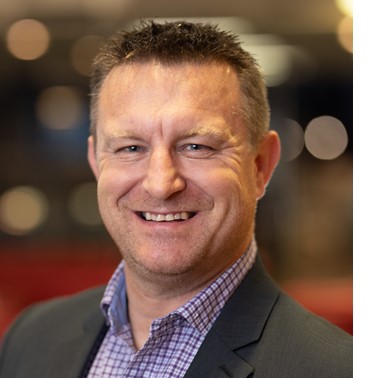

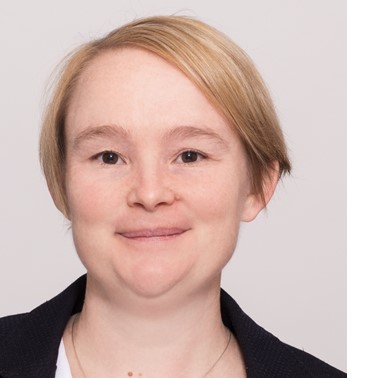
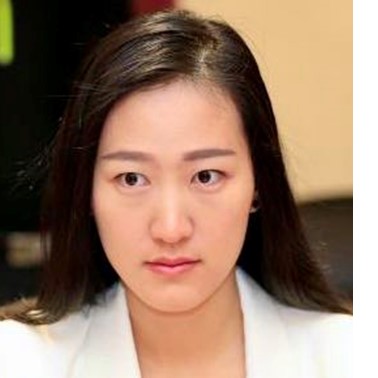
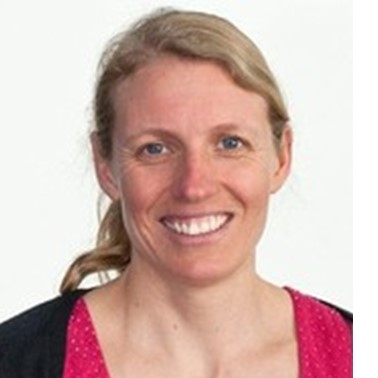
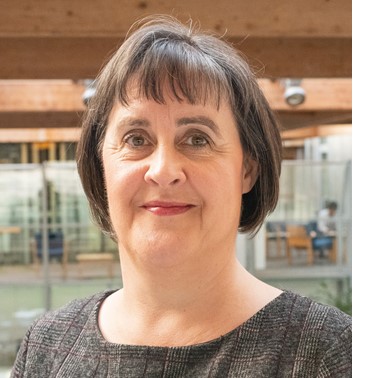
See all the new PraxisAuril RTTPs